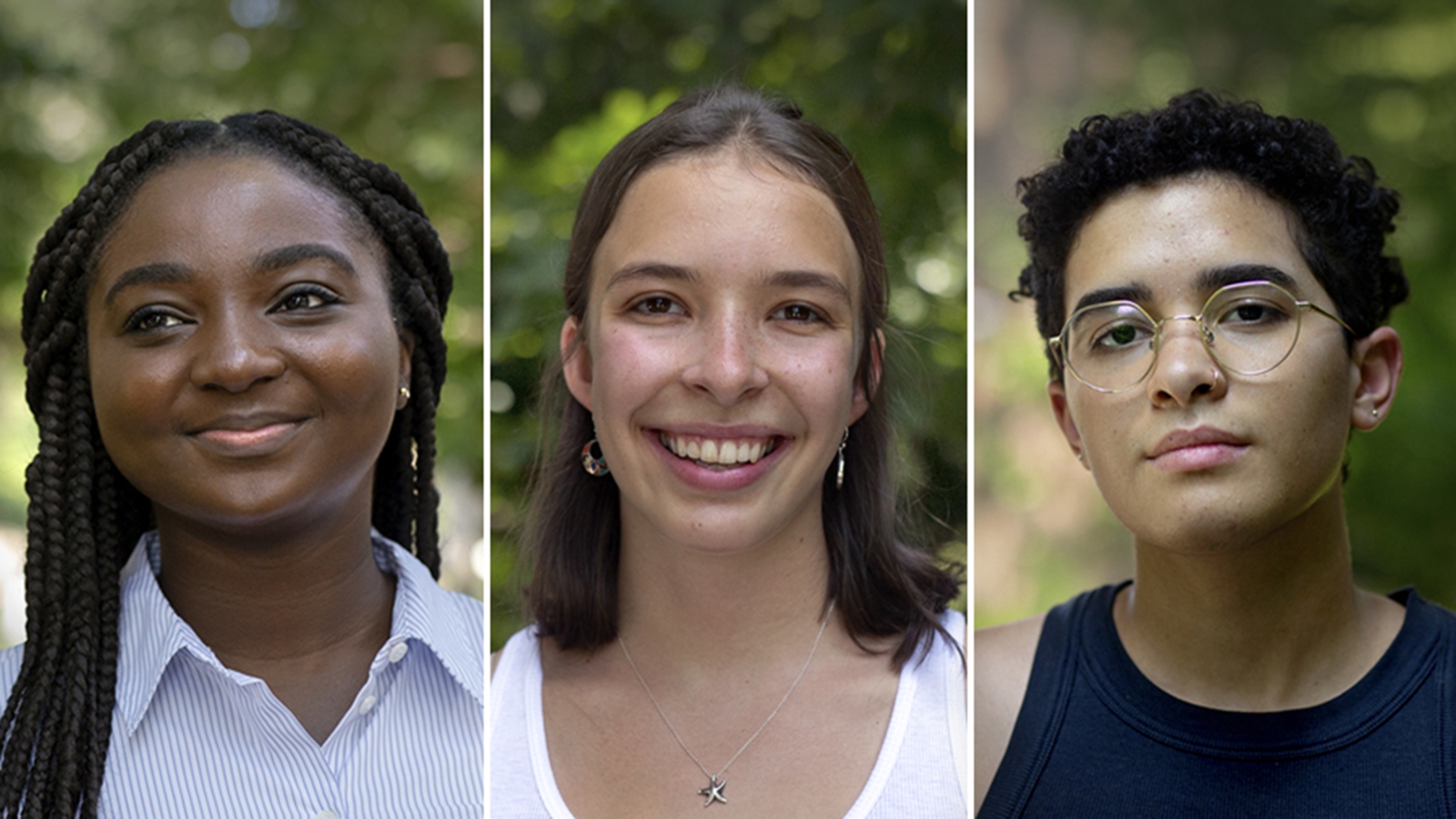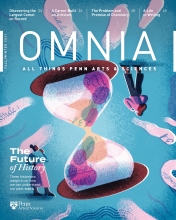Research might look like sitting at a computer, poring over code, or like reviewing notes taken during an experiment. But research is about more than what any one scholar can learn or create on their own. For research to flourish, there must be a community.
MindCORE—Penn’s home for integrative study of the mind—hosts two summer research programs that create a research community consisting of undergraduates from Penn and across the country and Penn faculty. The Lila R. Gleitman Undergraduate Summer Fellowship Program is for Penn students, while students from outside Penn are part of the Research Experiences for Undergraduates (REU) Site in Interdisciplinary Mind and Brain Studies funded by the National Science Foundation. REU places a special emphasis on recruiting students who are traditionally underrepresented in the sciences or who attend colleges with limited research opportunities.
For 10 weeks this past summer, students and faculty worked alongside one another, both in-person and virtually. There was hands-on research, as well as guest lectures, professional development events, and journal clubs where students would read academic articles and come together for discussion. Students learned to use software like JsPsych and PCIbex and practiced coding with RStudio, MatLab, and Python. The program culminated in a symposium for the students to share their findings.
“We geared the program toward students having shared experiences, even though some people were remote and students came from a range of disciplines,” says Florian Schwarz, Associate Professor of Linguistics and MindCORE’s Associate Director for Education. “We hit the lucky spot of the summer and were able to work together for the full 10 weeks before updated COVID restrictions came into play.”
It was the first time that the Gleitman Fellows and REU students had the opportunity to work alongside one another, something that Schwarz says benefitted everyone.
“The Gleitman Fellows represent the diversity of the Penn student body, and the program for students outside of Penn is meant to open opportunities for undergraduates who might not otherwise have access,” he explains. “Because of that, students who aren’t typically represented in the sciences could feel like there are others like them around and didn’t have to feel the pressure of being the ‘only.’”
Students were drawn to the program for different reasons. Bema Boateng, C’22, a neuroscience major and bioethics minor, was looking for an opportunity to focus solely on research without balancing it with classes, and she chose the MindCORE program over others because it combined that in-depth research with the opportunity to learn and connect with faculty and peers. Sabine Chavin, C’22, wanted to research with Vijay Balasubramanian, Cathy and Marc Lasry Professor in the Department of Physics and Astronomy, whom she had taken a class with in her sophomore year. And Drey Diggs, a student at Pomona College, learned about the program from their school’s Department of Linguistics and Cognitive Science.
Diggs says, “I was originally apprehensive about applying because I assumed I wouldn't be qualified, but I had a chat with the professor who had sent out the opportunity, and he encouraged me to apply.”
As part of the REU program, Diggs worked with Meredith Tamminga, Associate Professor of Linguistics, on the origins of a particular feature of the Philadelphia accent. Diggs explains, “Philadelphians often pronounce ‘th’ sounds, like in ‘this’ or ‘that,’ as a ‘d’ sound, like ‘dis’ or ‘dat.’ By looking at conversational speech data from G.I. Generation and Silent Generation speakers, we were able to trace this feature back to likely origins among Italian immigrants. The Italian language doesn't use the ‘th’ sound, so it makes sense that native Italian speakers learning English would start to replace the sound with something easier to pronounce.”
Chavin, a physics major and computer science minor, says she was impressed by the amount of work she and her peers were able to accomplish in just 10 weeks. Her project was focused on looking at spatial navigation processes in the brain. She explains that all of our sensory data is perceived relative to ourself, using our head and body as the frame of reference. But the brain takes that egocentric data and creates cognitive maps that are allocentric, or based on external frames of reference.
“We’re modeling those types of transformations using neural networks,” says Chavin. “The theory is that if our network self-organizes successfully and can find these representations, then that could be an indicator that our brains uses similar transformations.”
Boateng worked in the lab of Joseph Kable, Baird Term Professor of Psychology and Director of MindCORE. Working with Min Su Kang, a graduate student in psychology, she researched how depression affects metacognition and confidence during decision-making. Boateng says the experience was about more than simply doing an experiment: “I was given a great preview into what actually goes into planning a research project and new study.” Boateng and Kang considered two types of decision making, perceptual decision making and value-based decision making, and had to design a study that tested both.
While past research shows that people with depression are less confident, it also shows that the same people are highly accurate. Boateng’s research seeks to find out if depression affects people’s decision-making confidence and accuracy when it involves things of value that are not seen to necessarily have a right or wrong answer.
Diggs, Chavin, and Boateng started their research this summer, but questions remain. And they will all keep at it.
“We very much hope that this is the beginning of lasting relationships and collaborations. Many students already got exciting data and have been nominated to present at an REU Symposium this fall, but for more intricate types of data collection, full sets of data in 10 weeks was not possible,” says Schwarz. “So, these projects will continue, ideally leading to presenting at conferences or publishing down the line.”




